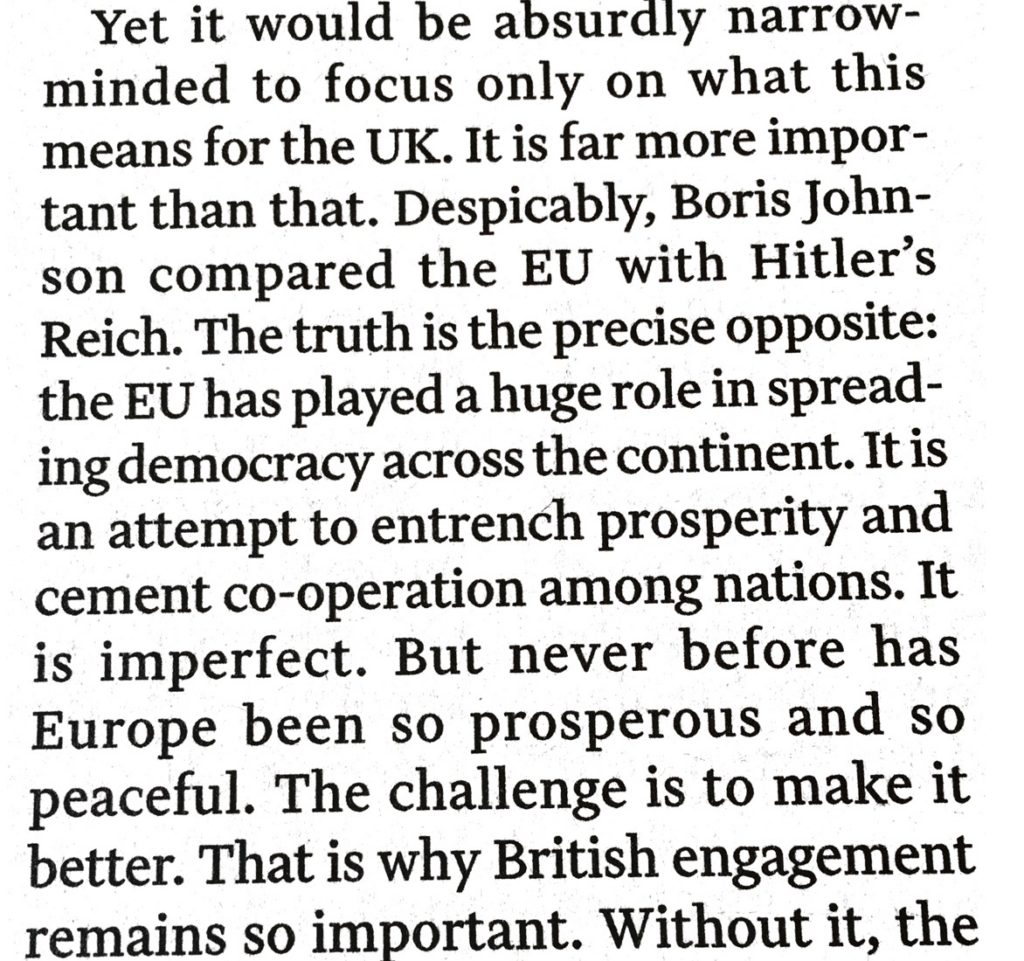From the Economist‘s Bagehot column:
The prime minister’s gamble was underwritten by the assurance that he could handle it, that his powers of persuasion and credibility (which, to be fair, are considerable) would save the day. In the months and years after his 2013 speech, he wasted opportunity after opportunity to roll the pitch for the referendum; to build, over time, a durable case to stay in the EU. Under-advised and overconfident, he turned the renegotiation from an asset to a stick with which Brexiteers could beat him. His referendum campaign, for all its flashes of skill and conviction, was too little, too late. The whole exercise was a spectacularly foolhardy act of overreach. The unanticipated outcome will be a Britain poorer, more isolated, less influential and more divided.
A time will come for reflection on the good in Mr Cameron’s leadership of the Conservative Party and his premiership, on his fundamentally correct vision for a one-nation Tory party in possession of the centre ground. But it will surely be dwarfed by this giant, nation-changing misstep, one guaranteed to scar the country for decades and diminish his place in the history books. He leaves office in ignominy.
Yep.
And this from Krugman:
Well, that was pretty awesome – and I mean that in the worst way. A number of people deserve vast condemnation here, from David Cameron, who may go down in history as the man who risked wrecking Europe and his own nation for the sake of a momentary political advantage, to the seriously evil editors of Britain’s tabloids, who fed the public a steady diet of lies.
That said, I’m finding myself less horrified by Brexit than one might have expected – in fact, less than I myself expected. The economic consequences will be bad, but not, I’d argue, as bad as many are claiming. The political consequences might be much more dire; but many of the bad things I fear would probably have happened even if Remain had won.

